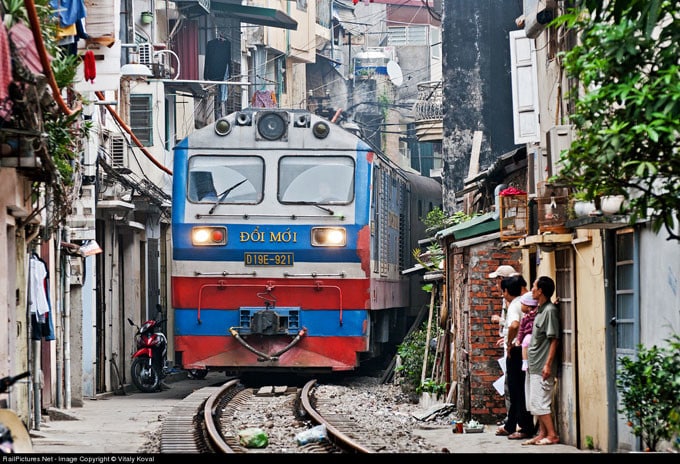
The legacy of years of underinvestment in railway infrastructure in Vietnam has resulted in consistently low ratings on efficiency of operations, quality of services, and financial sustainability. As the railway system struggles to meet the demands of a growing market economy much of the network is in dire need of upgrading in order to provide an efficient and cost-effective service. Despite having a large potential to provide a low cost, low emissions alternative to road transport, particularly for long distance haulage, the rail sector in Vietnam is performing well below its potential. By 2014, rail was carrying only 3.4% of passenger-kilometers and just under 2% of freight net ton-kilometers – which represented about 12 million passengers and 6.5 million tons annually. Operating speeds are still low, being a single-track railway, with average commercial speeds of 60 km/h for passenger services and 30 km/h for freight services.
But this is going to change. With the impact of road accidents, increased congestion on the road and comparatively high logistics costs within the region, the government of Vietnam has to face the railway challenge and is preparing itself to address the issue at hand. A major reorganization of the railway subsector is ongoing designed to open up opportunities for the private sector to invest and improve efficiency in the provision of rail transport services. In parallel, the government is undertaking a major reform of the railway law and the related decrees to modernize the sector.

The World Bank is now supporting the government of Vietnam in preparing a business plan that will set out the rationale and options for prioritizing and delivering specific railway investments whilst providing advice on potential areas of private sector participation – from ticketing, to rolling stock, stations, and infrastructure. The overall objective is to increase the capacity of the government to improve the quality and efficiency of the railway sector in Vietnam. By helping the authorities to define the pricing strategy for the railway sector, restructure the rail transport companies with sound incentives and support, and prepare a network based roadmap for railway project investments, the World Bank is bolstering railway transport in Vietnam to make it matter.






